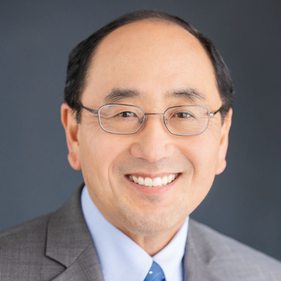Center for Healthcare Policy and Research study informs new weight loss and wellness initiative
February 28, 2023
It can take years to turn health research findings into actionable, clinical practice. But a new initiative led by a team from the Center for Healthcare Policy and Research (CHPR) aims to narrow that gap significantly.
CHPR’s Koa Family Study demonstrated compelling results from a “whole health” approach to promoting weight loss among women with low income. The findings are the basis of a new initiative to launch March 2 at the UC Davis Health Folsom Clinic.
“We were thrilled with the Koa Family results,” said Desiree Backman, the study’s lead author and chief of the Prevention Policy and Practice Group (3PG) at CHPR. “Research like this needs to be shared as widely as possible.”
“Whole health is an approach to thinking about someone’s life experience: mind, body and spirit. It’s not just about the food that you take in or physical activity you do. It’s about day-to-day life, from healthy relationships to your mindset to overcoming adversity, building resilience, and getting better sleep. All these things need to be working together.”
Koa Family Program
Results from the Koa Family Program were published in the Health Education Journal in 2022. The randomized controlled trial found significant health and wellbeing effects from the community-based, telewellness program focused on reducing obesity among women with low income. Study participants had an average weight loss of eight pounds over 25 weeks.
We were thrilled with the Koa Family results. Research like this needs to be shared as widely as possible.—Desiree Backman, chief of the Prevention Policy and Practice Group at the Center for Healthcare Policy and Research
“Helping people make good food and physical activity choices is a start, but having that encapsulated into a ‘whole health’ approach is a unique characteristic of the Koa Family Program,” said Backman. “To see the data support the concept was quite exciting.”
The study included 70 women, ages 21-45, who were interested in weight loss. Researchers led weekly health education Zoom meetings, provided encouragement and support through texting and private Facebook groups, and facilitated tree planting and environmental stewardship activities for participants.
“It is a mistake to assume that obesity is simply calories in and calories out,” said Neal Kohatsu, 3PG health strategist at CHPR. “In designing the program, we didn’t start with obesity, we started with what’s important to the individual and that’s social connections with family and the community – it’s about overall wellbeing.”
In designing the program, we didn’t start with obesity, we started with what’s important to the individual and that’s social connections with family and the community – it’s about overall wellbeing.—Neal Kohatsu, health strategist for the Prevention Policy and Practice Group at the Center for Healthcare Policy and Research
Folsom clinic initiative
“The Folsom clinic project is about taking what we learned and applying it in a new setting, serving patients with a different demographic profile,” Backman said.
The Folsom initiative is a weight loss and wellbeing program for women, as was the Koa Family Study. However, it is applying the “whole health” approach to women from moderate income households consistent with the clinic’s suburban location. Kohatsu noted that lessons from the earlier work are helping the 3PG team to deliver the program more efficiently, shortening the program to 15 weeks.
The 3PG team will be assisted by Folsom clinic staff and physicians led by Victor Baquero, medical director at the Folsom clinic, and Kristi Riddlesperger, practice manager at the Folsom clinic.
“I’m delighted to see the Koa Family Program launched at the Folsom Clinic with the strong support of Dr. Baquero. It shows how we translate best evidence into prevention practice at UC Davis Health,” said Allen Hall, medical director for the UC Davis Health Community Physicians Group.
The 3PG team says that there is potential for future expansion of the “whole health” approach to patients beyond Folsom.
The Koa Family Study was funded by the United States Department of Agriculture’s Supplemental Nutrition Assistance Program—SNAP and the California Department of Forestry and Fire Protection. The Folsom clinic initiative is supported by UC Davis Health.
Led by Backman, CHPR’s 3PG team includes Kohatsu, Camlyn McCracken, Crystie Dao, Julia Fleuret, Xinran Dhaliwal, and Liane Winter. Authors of the paper on the Koa Family Program also include Dominique Ritley (CHPR) and Andrew Padovani (formerly with CHPR).


